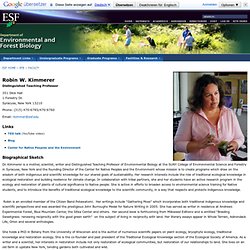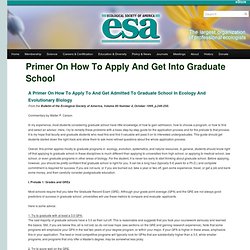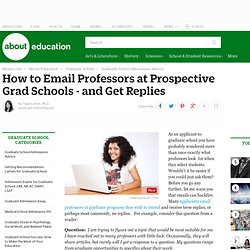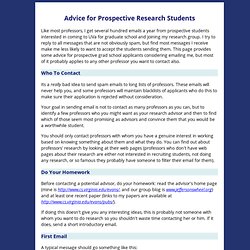

SUNY-ESF: Robin W. Kimmerer, Department of Environmental and Forest Biology. 351 Illick Hall 1 Forestry Dr.

Syracuse, New York 13210 Phone: (315) 470-6785/470-6760 Email: rkimmer@esf.edu Links Biographical Sketch Dr. Robin is an enrolled member of the Citizen Band Potawatomi. She holds a PhD in Botany from the University of Wisconsin and is the author of numerous scientific papers on plant ecology, bryophyte ecology, traditional knowledge and restoration ecology. Current Graduate Advisees Current Graduate Advisees Trinity Boisverttmboisve@syr.edu Degree Sought: MPSGraduate Advisor(s): KimmererArea of Study: Conservation Biology Suzanne Greenlawsegreenl@syr.edu Degree Sought: MSGraduate Advisor(s): KimmererArea of Study: EcologyUndergraduate Institute: University of Maine Presque Isle (Environmental Science) Raymond Gutteriezrjgutter@syr.edu Degree Sought: MSGraduate Advisor(s): Beier and Kimmerer,r Area of Study: Ecology Meredith Kanemlkane@syr.edu Degree Sought: MSGraduate Advisor(s): KimmererArea of Study: EcologyUndergraduate Institute: St Lawrence University (Biology)
Primer on How to Apply and Get into Graduate School. From the Bulletin of the Ecological Society of America, Volume 80 Number 4, October 1999, p.246-250.

Commentary by Walter P. Carson In my experience, most students considering graduate school have little knowledge of how to gain admission, how to choose a program, or how to find and select an advisor. Here, I try to remedy these problems with a basic step-by-step guide for the application process and for the prelude to that process. It is my hope that faculty and graduate students who read this and find it valuable will pass it on to interested undergraduates. Overall, this primer applies mostly to graduate programs in ecology, evolution, systematics, and natural resources.
I. Most schools require that you take the Graduate Record Exam (GRE). Here is some advice: 1. 2. 3. How to Email Professors at Prospective Grad Schools - and Get Replies. As an applicant to graduate school you have probably wondered more than once exactly what professors look for when they select students.

Wouldn’t it be easier if you could just ask them? Before you go any further, let me warn you that emails can backfire. Many applicants email professors at graduate programs they wish to attend and receive terse replies, or perhaps most commonly, no replies. For example, consider this question from a reader: Question: I am trying to figure out a topic that would be most suitable for me.
This reader’s experience is not unusual. Figuring out what you want to study is your job. Ask informed questions, not ones whose answers are readily available. Plant Biology Section. Universities and Programs. Advice on Emailing Professors When Applying to Grad School? - college application applications. Any advice concerning email communication with professors who I'll be contacting at the various schools that I will be applying to for PhD programs in Political Science?

As part of my application process I've been identifying the schools that I want to apply to and the professors at each campus that I would want to work with. I've been reading some of their recent writings so I can begin contacting them via email. At the moment, my plan is to email them sometime soon letting them know I'm thinking of applying to their school, my planned research statement, and letting them know which of their articles I've read. I was going to include a comment about the articles I had read and ask them some question about something I'm unsure about or how their article might be in conflict with some other research. If/when I get a response I was planning to follow up by asking to see any unpublished articles if they are working on something that also fits with my interest. Advice for Prospective Students. Like most professors, I get several hundred emails a year from prospective students interested in coming to UVa for graduate school and joining my research group.

I try to reply to all messages that are not obviously spam, but find most messages I receive make me less likely to want to accept the students sending them. This page provides some advice for prospective grad school applicants considering emailing me, but most of it probably applies to any other professor you want to contact also. Who To Contact Its a really bad idea to send spam emails to long lists of professors. These emails will never help you, and some professors will maintain blacklists of applicants who do this to make sure their application is rejected without consideration.
You should only contact professors with whom you have a genuine interest in working based on knowing something about them and what they do. Do Your Homework First Email A typical message should go something like this: Gradschoolmatch.
Oregon State. NYBG (faculty for fellowship) S/C-UNY. Fordham.